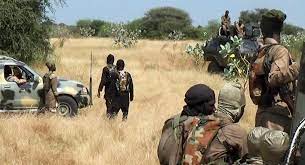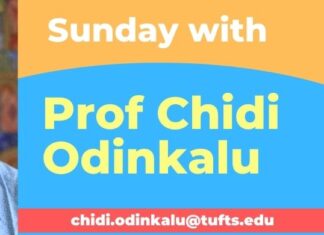By Jeph Ajobaju, Chief Copy Editor
Abuja claims to have spent N1.2 billion to import arms and ammunition to fight insurgency but ill-equipped Nigerian soldiers could not get anywhere near Abubakar Shekau, who snuffed out his own life when surrounded by rival jihadists on May 19.
Fellow jihadists in the band of Islamic State West Africa Province (ISWAP), who forced Shekau to commit suicide, are growing in confidence. Now they dominate the terror space with a much bigger war chest to decimate Nigerian military targets.
Insurgency claimed 767 lives in the base of Boko Haram in Borno State in the first quarter of 2021 (Q1 2021), according to research by SBM intelligence.
Kaduna is currently dealing with Ansaru armed militia and tops the list of states with bandit infestation with 473 media reported deaths in Q1 2021. Zamfara had 304.
Chadian connection
Nairametrics reports that the death of Chadian President Idriss Deby earlier this year was a major blow in the fight against Boko Haram, as his government had been Nigeria’s key ally in the fight against Boko Haram and Sahelian insurgency.
Deby dislodged Boko Haram Islamists from Chad in an offensive he led personally in early 2020 which killed about a thousand of them.
He also ended Chadian involvement in the MNJTF, limiting Chadian forces within the country’s borders, with the bulk of the fighting in Lake Chad done by Nigerian troops.
The continuous fighting in the Lake Chad region between Islamic State West Africa Province (ISWAP) – a faction that broke out of Boko Haram – and Boko Haram has made Abuja to admit it is well aware of the Chadian crisis.
Chad also announced economic and humanitarian policies ultimately aimed at containing the growing problem in the area.
Nigeria’s Humanitarian Affairs Minister, Sadiya Farouq, disclosed earlier this year that Abuja will focus on three areas to support Project Lake Chad (PROLAC).
The areas include Regional and National Coordination Platform and Local Capacity Building to reinforce regional dialogue and data collection and dissemination, as Boko Haram’s violence has spread towards Cameroon, Chad, and Niger, and created internally displaced persons (IDP’s) and refugees in the Lake Chad region.
ISWAP grows in confidence
ISWAP broke out of Boko Haram in 2016, according to Human Angle, a security report firm on terrorism in West Africa. ISWAP is led by Abu Musab, son of Boko Haram founder Mohammed Yusuf, whom police killed in Maiduguri in 2009.
Per Nairametrics, the group later moved into the Alagarno and Lake Chad Basin, taking over Boko Haram assets and becoming the dominant terror group in the axis.
ISWAP jihadists invaded Boko Haram’s stronghold in Sambisa forest in Borno State, subduing Shekau’s bodyguards and forcing surrender; a duel which led to Shekau detonating his suicide vest to end his life and those of several other terrorists.
ISWAP has ties with foreign jihadists in other global terrorism hotspots, and its success against Shekau would likely widen its leverage and power in the Lake Chad-Borno axis.
Shekau’s death, tiny piece of a larger pie
Confidence MacHarry, security analyst at SBM Intelligence, tells Nairametrics that ISWAP is expected to give Shekau’s followers the same options of “bend the knee or die” as the group looks to round up its battle with Boko Haram.
“We would most likely see them give Shekau’s followers the same option they gave him: surrender or die. Since ISWAP has a better shot at state capabilities (welfare packages for the fighters and their families), some would take the offer.
“The people who would resist would likely do that out of ideological differences or simply as a result of loyalty to Shekau,” MacHarry adds.
“[But there is] even bigger work to be done.
“Taking away the head of a terror group is one thing. Rounding up his followers is another. Even worse, the ideology is kept alive by the inability of the Nigerian state to provide an alternative system.
“Shekau is just a tiny piece of the larger pie, which is the influx of foreign money in the development of terror groups in Nigeria exemplified by ISWAP, an even much bigger problem as they are more focused on attacking the military, unlike Boko Haram under Shekau, severely weakened and condemned to random attacks on hapless civilians.”
Asked why Nigerian troops did not get to Shekau before ISWAP, McHarry says: “They knew where he was but it was just too risky to smoke him out. ISWAP took the initiative and lost enormous manpower and personnel as a result. If the Nigerian military did that, it would have been a pyrrhic victory.”
Alarm bells in Abuja
Nairametrics warns that ISWAP expansion should signal alarms all over Abuja, as recorded attacks have shown ISWAP’s confidence in hitting positions of the Nigerian military.
With more ammunition and fighters to their cause, it is easy to see why the House Committee on the Army has called for alternative funding to provide the army with more weapons, as the terrorists would likely look to merge their assets into a major jihadi state to actualise their Islamic ideology.












